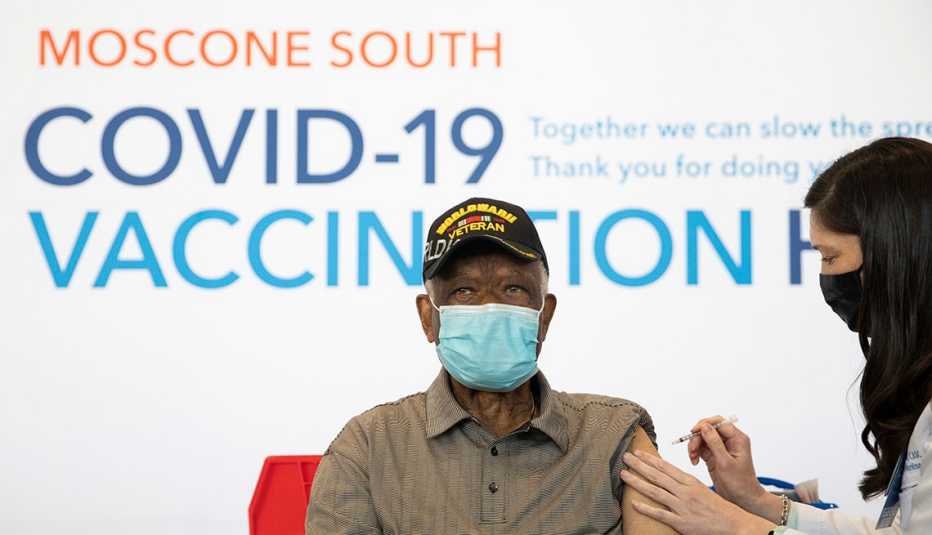AARP Hearing Center


Jane Kim, a physician helping to lead the Department of Veterans Affairs’ campaign to get vets vaccinated for COVID-19, has a word for those men and women already inoculated: Congratulations.
She has a caution, too: Don't post a picture of your vaccine card on social media platforms such as Facebook or Instagram. Making public all the personal information on the card — your full name, date of birth and where the vaccine was given — puts you at risk of identity theft, Kim wrote in a recent blog post for VAntage Point, the VA's official blog.
Another worry: “Someone could use the photo of your vaccination card to re-create the card and sell counterfeit versions,” she said.
Stash the card, show the sticker
Many VA facilities are issuing stickers that say, “I got my COVID-19 Vaccine @ VA,” she noted. “This is an excellent visual to share on social media instead of your vaccination card."
Kim, a medical doctor with a master's degree in public health, leads the VA's national project team that planned the distribution of COVID vaccines through its health care arm, the Veterans Health Administration (VHA). She's also the VA's chief consultant for preventive medicine.
Warning echoes FBI guidance
The VA's guidance not to show off your vaccine card to the world echoes what other federal officials, including at the FBI and the Federal Trade Commission, have said. The Better Business Bureau also warned against it soon after people started rolling up their sleeves for the shots.


Alan Greilsamer, the VHA's director of media relations, said the VA started spreading the word to be proactive about a problem it saw on “social media across the country."
According to Greilsamer, “This was not an issue unique to veterans. VA took a proactive approach in urging veterans not to post their COVID-19 vaccination cards. VA's efforts are designed to ensure veterans are aware of the potential risks of doing so."
He noted that “there was not a specific prevalence of these postings occurring among veterans."
- To learn more about who is eligible for a vaccination through the VA, and to request one, visit this website.
- To learn more about identity theft, check out these details from the Federal Trade Commission, a consumer protection agency.
Katherine Skiba covers scams and fraud for AARP. Previously she was a reporter with the Chicago Tribune, U.S. News & World Report, and the Milwaukee Journal Sentinel. She was a recipient of Harvard University's Nieman Fellowship and is the author of the book, Sister in the Band of Brothers: Embedded with the 101st Airborne in Iraq.
Katherine Skiba is a contributing writer for AARP. She has reported for the Chicago Tribune, U.S. News & World Report and the Milwaukee Journal Sentinel, and is the author of a wartime memoir, Sister in the Band of Brothers: Embedded With the 101st Airborne in Iraq. She was a Nieman Journalism Fellow at Harvard University.


































































More on Home and Family
5 Things to Know About the Latest COVID-19 Vaccine Scam
Feds say post-vaccine survey is fake and prize never arrivesFake COVID-19 Vaccination Cards Put Public Health at Risk
Authorities warn Twitter, Shopify, eBay to stem online sales of sham records8 Tips to Scam-Proof Your Life During COVID-19
Crooks capitalizing on the crisis want your cash and personal data